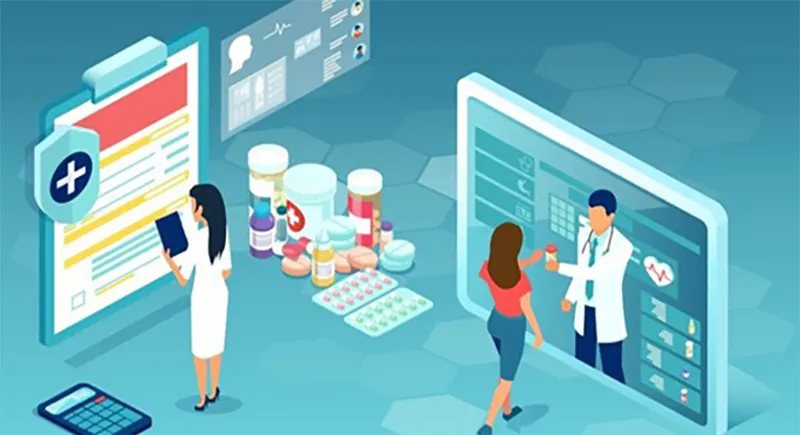The Indonesian Food and Drug Authority, known as Badan Pengawas Obat dan Makanan (BPOM), plays a pivotal role in safeguarding public health in Indonesia. As the primary regulatory body overseeing pharmaceuticals, BPOM ensures that all drugs and food products available in the market are safe, effective, and of high quality. This article provides an in-depth look at BPOM’s functions, structure, regulatory framework, challenges, and recent advancements, highlighting its crucial role in the Indonesian pharmacy system. Visit pafikotaargamakmur.org
BPOM: An Overview
Establishment and Mandate
BPOM was established in 2001, under Presidential Decree No. 166/2000, with the mandate to regulate, control, and supervise pharmaceuticals and food products in Indonesia. Its mission is to protect public health by ensuring the safety, efficacy, and quality of these products. BPOM operates under the Ministry of Health but maintains a significant degree of autonomy to fulfill its regulatory functions effectively.
Organizational Structure
BPOM’s organizational structure is designed to facilitate comprehensive oversight and regulation of pharmaceuticals and food products. Key components of this structure include:
- Directorate of Drug Evaluation and Licensing: Responsible for evaluating and licensing new pharmaceutical products.
- Directorate of Inspection and Certification: Conducts inspections of manufacturing facilities and ensures compliance with Good Manufacturing Practices (GMP).
- Directorate of Surveillance and Product Control: Monitors the safety and efficacy of products post-market and oversees recall processes.
- Directorate of Investigation and Law Enforcement: Handles violations of regulations, including counterfeit and substandard drugs.
- Regional Offices: BPOM has regional offices across Indonesia to ensure effective local enforcement and surveillance.
Regulatory Framework
Drug Registration and Approval
BPOM oversees the entire lifecycle of pharmaceuticals, from pre-market evaluation to post-market surveillance. The drug registration and approval process involves several key stages:
- Pre-Submission Requirements: Pharmaceutical companies must conduct clinical trials and ensure GMP compliance before submitting a drug for approval.
- Submission of Application: Companies submit detailed applications, including clinical and non-clinical data, quality documentation, and labeling information.
- Evaluation and Review: BPOM conducts a thorough scientific review of the application, including pharmacological, toxicological, and clinical evaluations.
- Inspection and Testing: BPOM may inspect manufacturing facilities and test product samples to verify compliance with standards.
- Approval and Licensing: If the drug meets all regulatory requirements, BPOM grants approval and issues a registration number, allowing the product to be marketed in Indonesia.
Post-Market Surveillance
Post-market surveillance is a critical component of BPOM’s regulatory framework. It involves monitoring the safety, efficacy, and quality of pharmaceuticals after they enter the market. Key activities include:
- Adverse Drug Reaction (ADR) Reporting: BPOM has an established system for reporting and analyzing ADRs, involving healthcare professionals and consumers.
- Periodic Safety Update Reports (PSURs): Pharmaceutical companies are required to submit regular safety updates, including new data on the drug’s safety profile.
- Market Surveillance: BPOM conducts random sampling and laboratory testing of drugs from various points in the distribution chain.
- Compliance Inspections: Regular inspections of manufacturing facilities, distribution centers, and retail outlets to ensure ongoing compliance with regulatory standards.
Challenges Facing BPOM
Resource Constraints
BPOM faces significant resource constraints, including limited funding, personnel, and advanced laboratory facilities. These limitations can hinder its ability to conduct comprehensive inspections and testing, affecting the overall effectiveness of its regulatory activities.
Counterfeit and Substandard Drugs
The presence of counterfeit and substandard drugs in the market is a persistent challenge. These products can evade standard surveillance mechanisms and pose serious risks to public health. BPOM’s efforts to combat counterfeit drugs involve collaboration with law enforcement agencies and international organizations.
Regulatory Compliance
Ensuring consistent regulatory compliance across a diverse and rapidly growing pharmaceutical industry is challenging. BPOM must balance rigorous enforcement with the need to support industry growth and innovation.
Recent Advancements
Digital Transformation
BPOM has embraced digital transformation to enhance the efficiency and effectiveness of its regulatory activities. Key initiatives include:
- Electronic Drug Registration System (e-Registration): An online platform that streamlines the drug registration process, allowing for faster and more efficient application submissions and reviews.
- Digital ADR Reporting: An electronic system for reporting adverse drug reactions, improving the accuracy and timeliness of data collection and analysis.
- Data Analytics and AI: Leveraging data analytics and artificial intelligence to identify patterns and trends in ADRs and other surveillance data, enabling more proactive risk management.
International Collaboration
BPOM collaborates with international regulatory bodies and organizations to enhance its regulatory framework and adopt global best practices. These collaborations include:
- ASEAN Harmonization: Working with other ASEAN countries to harmonize regulatory standards and procedures, facilitating easier access to the regional market.
- WHO Collaborations: Partnering with the World Health Organization to improve regulatory capacity and implement international guidelines.
- Bilateral Agreements: Establishing bilateral agreements with other countries to share information and resources, enhancing the effectiveness of regulatory activities.
Public Engagement and Awareness
BPOM recognizes the importance of public engagement and awareness in ensuring the success of its regulatory activities. Recent initiatives include:
- Public Awareness Campaigns: Educating healthcare professionals and consumers about the importance of reporting ADRs and recognizing counterfeit drugs.
- Transparency Initiatives: Increasing transparency in regulatory processes by providing more information to the public about drug approvals, safety alerts, and enforcement actions.
- Stakeholder Collaboration: Engaging with industry stakeholders, healthcare professionals, and consumer groups to gather feedback and improve regulatory practices.
Future Directions
Strengthening Regulatory Capacity
Enhancing BPOM’s regulatory capacity is crucial for ensuring effective oversight of the pharmaceutical industry. This includes increasing resources for inspections, investing in advanced laboratory facilities, and enhancing the skills of regulatory personnel through training and development programs.
Leveraging Technology
Leveraging technology can further improve the efficiency and effectiveness of BPOM’s regulatory activities. Future initiatives may include the use of blockchain technology to secure the pharmaceutical supply chain and advanced data analytics for more sophisticated risk management.
Enhancing International Collaboration
Continued international collaboration will help BPOM adopt global best practices and standards, improving the overall regulatory framework. This includes expanding partnerships with international regulatory bodies, participating in global regulatory forums, and implementing international guidelines and recommendations.
Conclusion
The Indonesian Food and Drug Authority (BPOM) plays a vital role in ensuring the safety, efficacy, and quality of pharmaceuticals and food products in Indonesia. Through its comprehensive regulatory framework, BPOM oversees the entire lifecycle of pharmaceuticals, from pre-market evaluation to post-market surveillance. Despite facing significant challenges, including resource constraints and the presence of counterfeit drugs, BPOM has made notable advancements in digital transformation, international collaboration, and public engagement. By continuing to strengthen its regulatory capacity, leverage technology, and enhance international collaboration, BPOM can further improve its effectiveness and contribute to better health outcomes for the Indonesian population.










